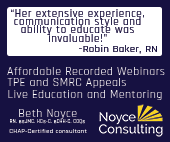by Tim Rowan, Editor Emeritus
Counter-intuitive but true. Over-the-top customer service, intended to delight rather than merely satisfy, creates no more customer loyalty than very good customer service.
Speaking to a crowded room at last week’s Home Care 100, Ian Goddard, of Challenger Performance Optimization, Inc., raised a lot of eyebrows when he presented findings of an extensive research project that surveyed 125,000 customers and 5,000 customer service reps across a range of unrelated industries.
- Lousy customer service discourages return customers.
- Good customer service increases customer loyalty.
- Great service leads to a high level of loyalty, but that is as high as it goes.
Over-the-top, he called it “delight service,” results in the same level of loyalty as great service.
Most people have heard the stories. Anyone who has taken a sales training class know about the Nordstrom’s employee who refunded money to a customer who was dissatisfied with a tire. She had bought the tire at that location when the building housed a tire store, before it was a Nordstrom’s.
Goddard told a similar one about a stuffed giraffe that was left behind at a Ritz-Carlton when the family left for the airport. At bedtime, the giraffe’s poor little owner was distraught. Dad called the hotel and soon began to receive photos of the giraffe “on vacation” but coming home soon. The enthusiastic employee took pictures of the giraffe sunning himself by the pool, having a drink at the cafe, and sleeping in a big comfortable bed. The little guy was at peace and slept well. The father flooded social media, singing the praises of Ritz-Carlton. “I’ll never stay anywhere else,” he proclaimed.
According to the Challenger survey, that enthusiasm does last for a while, but not forever. If that grateful dad’s next vacation is in a city without a Ritz-Carlton, or if there is another upscale hotel with a better price, loyalty takes a back seat. His social media campaign, of course, has a long-lasting ripple effect. Word of mouth today is online, not over the backyard fence.
Effortless Customer Service
The survey discovered that there is, however, one customer service experience that impacts loyalty more than any other, even more than service that delights a customer. “Your customers do not want to talk to you,” Goddard asserted. “The most important experience is the one that requires the least effort on the part of the customer. The customer service rep who acts as your advocate cuts through red tape, solves your problem, and takes steps to avoid you having to call again about the same thing. Advocacy is the characteristic of the rep who creates loyalty. Think of your own customer service experiences. If you have to work, or wait on hold, to get a problem solved or to fix something broken, you come away unhappy, meaning less loyal to the brand, even if your issue is finally resolved.
Out of eight personality types typically found in customer service positions, Goddard said, the “controller” type is the most effective. This is the agent who says, “Hold on, I’m going to take care of this for you,” and then comes back a few minutes later with, “all done, problem solved.”
Avoid the Next Service Issue
Goddard told the story of the customer with a broken vacuum cleaner belt. The service rep recognized the issue and told him, “Your replacement part is already on its way.” When he received two belts instead of one, he called back. She said, “We have learned that some customers have trouble installing the belt and they break it the first time. So, we send two, hoping they will learn what they did the first time and install it correctly with the second part.”
“Thinking forward like this vacuum cleaner company does cost a few extra cents with every replacement, but avoids a far more expensive service rep interaction in the future and cements customer satisfaction,” Goddard explained.
Effortless Service in Home Care
Ryan Iwamoto, owner of 24 Hour Home Care, interpreted this way of thinking about customer loyalty for our industry. Asking, “How do we get effortless experience into our organization?” he partnered with a company called Tethr that listens to and analyzes phone conversations. It then coaches the customer service person on ways to improve effectiveness, think like an advocate, and improve satisfaction. Realizing that his caregivers are much like customers, he uses Tethr for them as well.
From the start of the Tethr implementation to the present, advocacy on all calls increased from 26.3% to 34.1%. Difficult calls decreased from 8.3% to 7.9%. Average call length decreased from 4 minutes, 15 seconds to 3 minutes, 52 seconds. Customer Effortless Score, which was tracked at the company, region, office, and individual level, increased 39 percent. Phone calls tracked came from all customers: clients, caregivers, and referral sources.
Tim Rowan is a 30-year home care technology consultant who co-founded and served as Editor and principal writer of this publication for 25 years. He continues to occasionally contribute news and analysis articles under The Rowan Report’s new ownership. He also continues to work part-time as a Home Care recruiting and retention consultant. More information: RowanResources.com
Tim@RowanResources.com
©2024 by The Rowan Report, Peoria, AZ. All rights reserved. This article originally appeared in Healthcare at Home: The Rowan Report. One copy may be printed for personal use: further reproduction by permission only. editor@therowanreport.com



